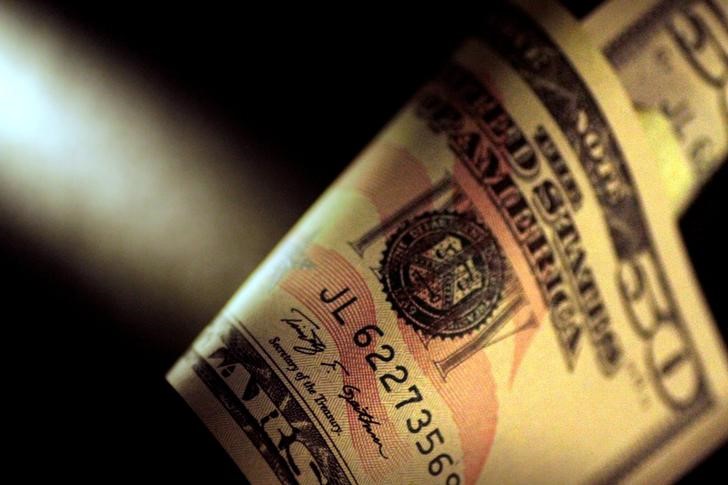By Peter Nurse
Investing.com - The U.S. dollar weakened in early European trade Friday, heading for its worst week in more than a year as traders now consider Federal Reserve interest rates hikes this year as being fully priced in.
At 2:55 AM ET (0755 GMT), the Dollar Index, which tracks the greenback against a basket of six other currencies, traded 0.1% lower at 94.735. The index is down over 1% for the week, on course for its largest weekly percentage fall since December 2020.
This dollar selloff has come in a week that has seen annual U.S. consumer inflation climb to levels not seen since the early 1980s and several Fed officials talk about the need for the central bank to hike interest rates and reduce its balance sheet to combat inflation.
The latest policy maker to suggest prompt Fed action was Governor Lael Brainard, who said during her confirmation hearing before the Senate Banking Committee, that “we do have a powerful tool and we are going to use it to bring inflation down over time.”
USD/JPY traded 0.4% lower to 113.72, pushing as low as 113.64 for the first time since Dec. 21, EUR/USD rose 0.1% to 1.1467, climbing to its highest level since mid-November, and the risk-sensitive AUD/USD edged lower to 0.7280, just off an almost two-month high.
“A well-telegraphed jump in U.S. inflation to 7% was taken as a ‘sell the fact’ opportunity for FX investors, with a substantial unwinding of dollar longs triggering widespread dollar weakness,” said analysts at ING, in a note.
“The technical break higher in EUR/USD likely put some extra pressure on the dollar in other crosses: whether the 1.1500 resistance holds is key for dollar bulls at the moment.”
Elsewhere, GBP/USD rose 0.1% to 1.3721, helped by data showing the U.K. economy grew by a much stronger-than-expected 0.9% in November, finally taking the world’s fifth-largest economy above its size just before the country went into its first Covid-19 lockdown.
Sterling has been pretty resilient of late, withstanding the political turmoil surrounding Prime Minister Boris Johnson after the Bank of England raised interest rates in December. The market is also pricing in a strong likelihood of another hike in February.
USD/CNY fell 0.2% to 6.3460 after China posted a record trade surplus in December and in 2021, as exports outperformed expectations during a global pandemic while import growth slowed sharply.
USD/KRW traded largely flat at 1186.81 after the Bank of Korea raised its benchmark interest rate by 25 basis points to 1.25%, as widely expected.
